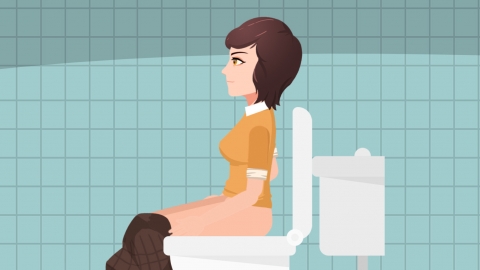What causes micturition syncope?
Generally, micturition syncope may be caused by psychological factors, unhealthy urination habits, dehydration, hypotension, diabetes, and other reasons. Symptomatic management through general treatment, medication, and other methods is needed. If physical discomfort occurs, medical attention should be sought promptly to avoid delay in treatment. A detailed analysis is as follows:

1. Psychological factors
Anxiety or nervousness regarding pain or discomfort during urination can activate the autonomic nervous system, causing significant fluctuations in blood pressure and heart rate, thus triggering syncope, which may be accompanied by palpitations, rapid breathing, sweating, and other symptoms. It is recommended to practice deep breathing or meditation before urination to help relax the body and mind, thereby reducing psychological stress during urination.
2. Unhealthy urination habits
Sudden urination after prolonged urine retention or excessive straining during urination may cause rapid changes in intra-abdominal pressure, affecting blood circulation and subsequently triggering syncope. Patients may also experience discomfort during urination, frequent urination, and other symptoms. It is recommended to develop good urination habits and avoid prolonged urine retention and excessive straining during urination.
3. Dehydration
When water intake is insufficient or excessive fluid loss occurs, dehydration may result. Dehydration leads to reduced blood volume and increased blood viscosity, making it more difficult for the heart to pump blood. During urination, this reduction in blood volume becomes more pronounced, causing an imbalance in blood pressure regulation and increasing the likelihood of syncope. Symptoms may include thirst, decreased urine output, and reduced skin elasticity. It is recommended to promptly replenish fluids and electrolytes and maintain adequate fluid intake.
4. Hypotension
Hypotension may be caused by genetic factors, insufficient blood volume, endocrine disorders, and other factors. For patients with hypotension, bladder emptying during urination may cause a large amount of blood to flow to the bladder area, thereby reducing the volume of blood returning to the heart, leading to a further drop in blood pressure and resulting in syncope. Patients may also experience symptoms such as dizziness, fatigue, and visual darkening. It is recommended to take medications such as midodrine tablets, flunarizine hydrochloride capsules, and propranolol hydrochloride tablets under a doctor's guidance for treatment.
5. Diabetes
Diabetes primarily results from defects in insulin secretion or impaired biological function, leading to elevated blood glucose levels. Diabetic neuropathy may damage autonomic nerve fibers that control blood pressure and heart rate, causing dysregulation of blood pressure during urination and resulting in syncope. Symptoms may include increased thirst, frequent urination, and weight loss. It is recommended to actively control blood glucose levels and follow medical advice to use medications such as orlistat capsules, acarbose capsules, and glimepiride tablets to alleviate symptoms.
When urinating in the bathroom daily, it is recommended to maintain good ventilation and avoid cerebral hypoxia caused by confined spaces and poor air circulation, which may trigger syncope.







